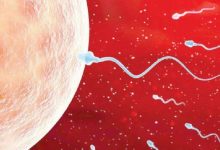The Essential Health Guide for Men Over 40: Key Changes and Wellness Tips
Understanding the Physical, Hormonal, and Lifestyle Changes After 40—And How to Stay Healthy

Watan-As men reach the age of 40, adopting healthy habits and following medical advice become crucial for maintaining their well-being. This stage of life marks a critical period to focus on one’s body and make positive changes to ensure a long and healthy life. However, many men tend to neglect their health needs, either due to the demands of balancing multiple responsibilities at this age or because of a lack of clarity about the health changes and requirements that come after 40.
Physical and Mental Health
It is often said that our health is influenced 20% by genetics and 80% by our lifestyle and behaviors. Therefore, men who prioritize their physical and mental health in midlife are more likely to live longer and enjoy a higher quality of life.
According to medical sources, there is a long list of major causes of poor health in men after 40. These include both medical and behavioral factors that can directly harm health and lead to complications. However, there are also several expected changes in men’s bodies after 40, which can vary in severity but inevitably impact their overall health as they age.

Expected Changes
Rather than discussing medical tests for disease detection and prevention— which will be covered in future weeks— here are some of the key expected changes in men’s bodies after 40 and how to address them:
1. Hormonal Changes
After reaching their 40s, men undergo significant hormonal changes that affect their physical, psychological, and sexual health. Some of the key changes include:
- Testosterone Levels: The male hormone testosterone begins to decline slightly from the age of 30, becoming more noticeable after 40. Lower testosterone levels can lead to reduced libido, weight gain, erectile dysfunction, fatigue, and mood swings.
- DHEA (Dehydroepiandrosterone): Produced by the adrenal glands, DHEA decreases with age, leading to reduced muscle mass, strength, and energy levels.
- Growth Hormone: Produced by the pituitary gland, this hormone decreases after 40, contributing to increased fat accumulation, lower energy production, and muscle loss.
- Cortisol Levels: Stress triggers the release of cortisol, which in turn can cause weight gain, hair loss, and cardiovascular diseases.
- Prostate Enlargement: Due to both hormonal and non-hormonal factors, the prostate gland tends to enlarge, which can lead to frequent urination or difficulty urinating.
- Erectile Function: While many men maintain normal sexual function well into old age, some experience less frequent erections and reduced ability for repeated sexual activity in short periods, along with decreased libido.
2. Body Shape and Posture
The human body naturally changes after 40, and while some of these changes are unavoidable, lifestyle choices can slow or accelerate the process.
- Muscle Loss: After 40, men tend to lose lean tissue (muscles, organs), which can lead to muscle atrophy.
- Bone Density Decline: Bones lose minerals, becoming less dense, which can result in early-stage osteopenia or later-stage osteoporosis.
- Increased Body Fat: Fat accumulates more around the abdomen and internal organs, while subcutaneous fat (under the skin) decreases.
- Height Reduction: Men typically lose about 1 cm (0.4 inches) every 10 years after 40, due to:
- Drying and flattening of spinal discs.
- Muscle loss affecting posture.
- Flattening of feet.
- Small spinal fractures caused by osteoporosis.

3. Skin and Hair Changes
After 40, the skin gradually thins, leading to:
- Slower wound healing.
- Increased sensitivity to cold.
- More dryness and itchiness.
- Rough skin patches (actinic keratosis) becoming common after 45.
- Visible wrinkles around the face, eyes, and neck.
Regarding hair:
- Hair Loss: About 50% of men experience genetic baldness. Some notice thinning hair in their mid-30s or later, especially on the crown. Meanwhile, ear and nose hair growth may increase.
- Graying Hair: Hair color turns white due to the gradual loss of pigment-producing cells. The onset of gray hair varies:
- Caucasians: mid-30s.
- Asians: late 30s.
- Africans: mid-40s.
- While early graying is not usually a sign of health issues, vitamin B12 deficiency or pituitary gland disorders can sometimes cause it.

Nutrition and Physical Activity
4. Healthy Nutrition
Being proactive about your health is key to a vibrant and fulfilling future. Lifestyle choices significantly affect the speed of age-related changes.
Fast-paced living, work stress, and family commitments often lead to poor dietary habits, which negatively impact both physical and mental health. Major risk factors for dementia include obesity and physical inactivity.
A balanced diet should include:
- Fruits, vegetables, and whole grains.
- Healthy fats from nuts, seeds, olive oil, and fatty fish.
- Limited processed foods, sugary snacks, and fast food.
- Proper portion control to prevent overeating and weight gain.
- Sufficient calcium and vitamin D for strong bones (from dairy, leafy greens, fortified foods, or supplements if needed).
- Adequate hydration: Drink 8–10 cups of water daily, especially in hot and dry climates.
5. Physical Activity
Maintaining physical and mental health is essential for long-term happiness and quality of life. Regular exercise not only improves physical appearance but also significantly reduces the risk of chronic diseases such as:
- Cardiovascular diseases
- Type 2 diabetes
- Certain cancers
- Osteoporosis

Recommended Exercise Routine
- At least 150 minutes of moderate aerobic exercise (jogging, swimming, cycling) or 75 minutes of intense exercise per week.
- Strength training for muscle maintenance.
- Simple daily habits to stay active:
- Walk instead of driving.
- Take the stairs.
- Spend time outdoors.
- Dance to your favorite music.
- Avoid prolonged sitting to reduce heart disease risk.
Additionally, stress management is vital. Many men over 40 struggle with stress from balancing careers and family life. To reduce stress:
- Practice meditation or relaxation exercises.
- Engage in recreational activities and social interactions.
- Spend quality time with family, friends, and colleagues.
- Aim for 7–9 hours of quality sleep each night by creating a sleep-friendly environment (minimizing noise, light, and electronic devices in the bedroom).
By prioritizing these healthy habits, men over 40 can maintain their well-being and enjoy a longer, healthier, and more fulfilling life.






